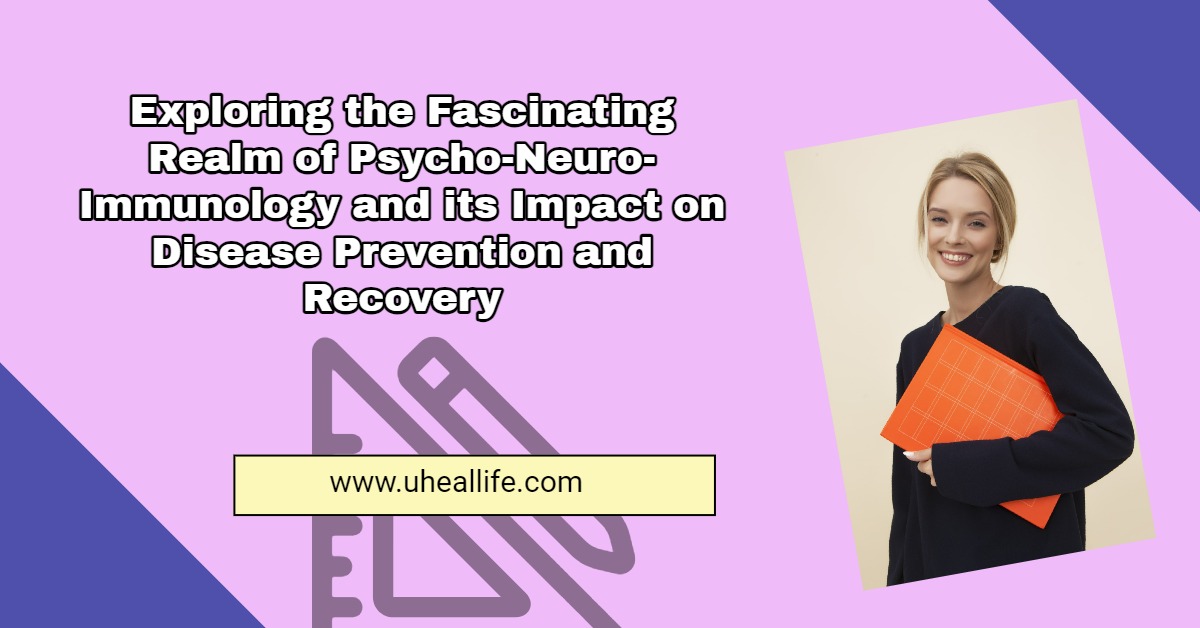Exploring the Fascinating Realm of Psycho-Neuro-Immunology and its Impact on Disease Prevention and Recovery
In recent years, a groundbreaking field has emerged at the intersection of psychology, neuroscience, and immunology, shedding light on the intricate connection between the mind and the body. Psycho-Neuro-Immunology (PNI) is dedicated to unraveling the mysteries of how emotions, the brain, and the nervous system influence the onset, progression, and recovery from various diseases. This article delves into the captivating world of PNI and its profound implications for disease prevention and recovery.
Understanding the Basics of Psycho-Neuro-Immunology:
Psycho-Neuro-Immunology examines the dynamic interplay between psychological factors, neurological processes, and the immune system. At its core, PNI investigates how stress, emotions, and cognitive processes impact the body’s ability to defend against illnesses and recover from them. Researchers in this field explore the intricate communication pathways between the brain and the immune system, revealing the profound ways in which mental and emotional states can shape our health.
The Role of Emotions in Health:
Emotions, often dismissed as mere feelings, play a crucial role in our overall well-being. PNI research has shown that positive emotions can enhance immune function, while chronic stress and negative emotions may weaken the immune response, making the body more susceptible to diseases. Understanding the emotional roots of certain illnesses opens up new avenues for therapeutic interventions that focus on emotional well-being as a key component of disease prevention and recovery.
The Brain’s Influence on Immune Response:
The brain, acting as the command center of the body, exerts a powerful influence on the immune system. PNI investigates how neural signals and neurotransmitters can modulate immune activity. Furthermore, it explores the impact of cognitive processes, such as perception and belief, on the body’s ability to mount an effective immune response. The findings in this area not only expand our understanding of the mind-body connection but also offer promising insights into developing holistic approaches to healthcare.
Stress, Cortisol, and Immune Function:
One of the key areas of focus in PNI is the study of stress and its impact on health. Chronic stress triggers the release of cortisol, a hormone that, in excess, can suppress immune function. This connection between stress, cortisol, and immune response underscores the importance of stress management in maintaining a robust immune system. Techniques such as mindfulness, meditation, and relaxation therapies are being explored as potential tools for enhancing immune function and supporting recovery from illness.
Practical Applications and Therapeutic Interventions:
As our understanding of PNI deepens, healthcare practitioners are exploring innovative ways to integrate this knowledge into clinical practice. From personalized stress management programs to mindfulness-based interventions, the practical applications of PNI are vast. Additionally, the field is paving the way for the development of novel treatments that consider the intricate interplay between psychological factors and physical health.
Conclusion:
Psycho-Neuro-Immunology represents a paradigm shift in our approach to health and wellness. By acknowledging the profound connection between the mind and the body, we open the door to new possibilities for disease prevention and recovery. As research in PNI continues to advance, the integration of psychological well-being into healthcare may become a cornerstone of holistic and effective medical practices, ultimately empowering individuals to take an active role in their health journey.

